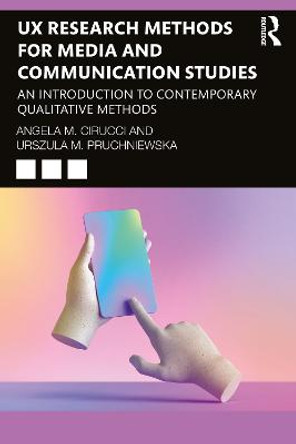Description
-Michael Irvin Arrington, Indiana State University
Qualitative Communication Research Methods, Fourth Edition introduces readers to qualitative research in speech and mass communication. Award-winning scholars and authors Thomas R. Lindlof and Bryan C. Taylor guide readers through every step of the qualitative process, from developing research topics and questions through writing a final report. Readers are given numerous examples of work in the field to illustrate how studies are designed, carried out, written, evaluated, and related to theory. In addition to covering the theories and methods currently used in qualitative communication research, the authors also discuss important trends influencing the future of that research, helping readers make informed judgments about the significance and consequences of recent trends.
New to the Fourth Edition:
- A new chapter titled "The Diversity of Qualitative Research in Communication Subfields" provides readers with a complete guide to the field's distinctive subfields and enables readers to identify the research agenda that best represents their own interests. Two rising subfields - Political Communication and Communication Activism - were added, resulting in thirteen subfields covered.
- Two major phases of data analysis have been split into separate chapters, enabling readers to concentrate on the initial steps of analysis before moving on to the interpretation phase of analysis.
- Discussions of important intellectual and institutional trends currently reshaping the landscape of qualitative research, including Materialist Theory, Big Data, and Open-Access publishing, provide readers with cutting-edge knowledge and skills that affect what they study and how they study it.
- An analysis of new developments in media and technology shows readers how social media networks and other digital platforms are not only topics of research, but also the means for collecting and analyzing data.
About the Author
Thomas R. Lindlof is a professor in the School of Journalism and Media at the University of Kentucky. His research and teaching interests focus on the cultural analysis of mediated communication, media audience theory and research, and qualitative research methodology. His research has appeared in numerous scholarly outlets, including Communication Research, Journal of Communication, Journal of Broadcasting & Electronic Media, Journalism Quarterly, Journalism Studies, Social Science Computer Review, and Communication Yearbook. He has served as the editor of the Journal of Broadcasting & Electronic Media. He has written or edited six books, including Qualitative Communication Research Methods (with Bryan C. Taylor) and Hollywood under Siege: Martin Scorsese, the Religious Right, and the Culture Wars. In 2011 he received the Distinguished Scholar Award from the Broadcast Education Association. He currently resides in Austin, Texas. Bryan C. Taylor is a Professor of Communication, and the Director of the Peace, Conflict and Security Program at the University of Colorado-Boulder. His teaching and research interests include qualitative methods, security studies, organizational communication, and technology studies. He has published in the Annals of the International Communication Association, Communication Research, Critical Studies in Media Communication, Journal of Applied Communication Research, Journal of Broadcasting and Electronic Media, Journal of Contemporary Ethnography, Management Communication Quarterly, Quarterly Journal of Speech, Rhetoric and Public Affairs, Culture and Organization, and elsewhere. He is co-author with Thomas Lindlof of Qualitative Communication Research Methods (Sage) and co-editor of Nuclear Legacies: Communication, Controversy and the U.S. Nuclear Weapons Production Complex (Lexington Press), which received the 2008 Christine Oravec Research Award from the Environmental Communication Division of the National Communication Association.
Reviews
"This is the best qualitative methods book I've seen, especially among books aimed at undergraduate audiences." -- Michael Irvin Arrington
"The book is exceptionally well written and easy to read even for students who know nothing about research methods." -- Martina Topic
"The engaging and accessible (generally) nature of writing is excellent and provides good inspiration and a good foundation to build on in terms of introductions to key steps and dimensions in qualitative research. The referencing of examples from 'real' research is attractive to lecturers and students alike and makes the introduction to qualitative research come alive." -- Anders Hansen
"An insightful and thoroughly researched book that will be extremely helpful for students aiming to engage with qualitative research at a deeper level." -- Sylvie Magerstadt
Book Information
ISBN 9781452256825
Author Thomas R. Lindlof
Format Paperback
Page Count 520
Imprint SAGE Publications Inc
Publisher SAGE Publications Inc
Weight(grams) 610g








